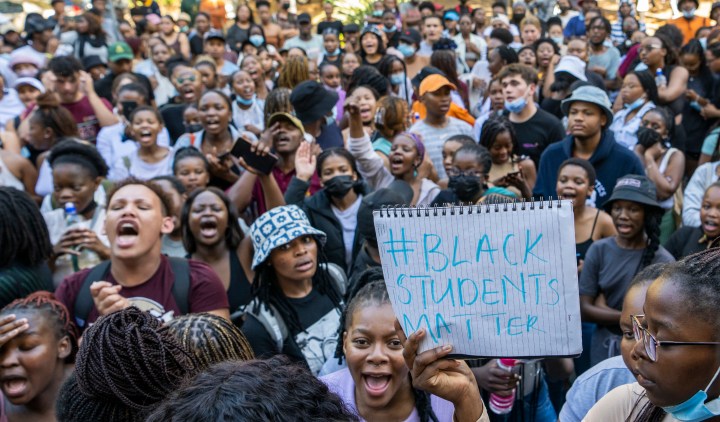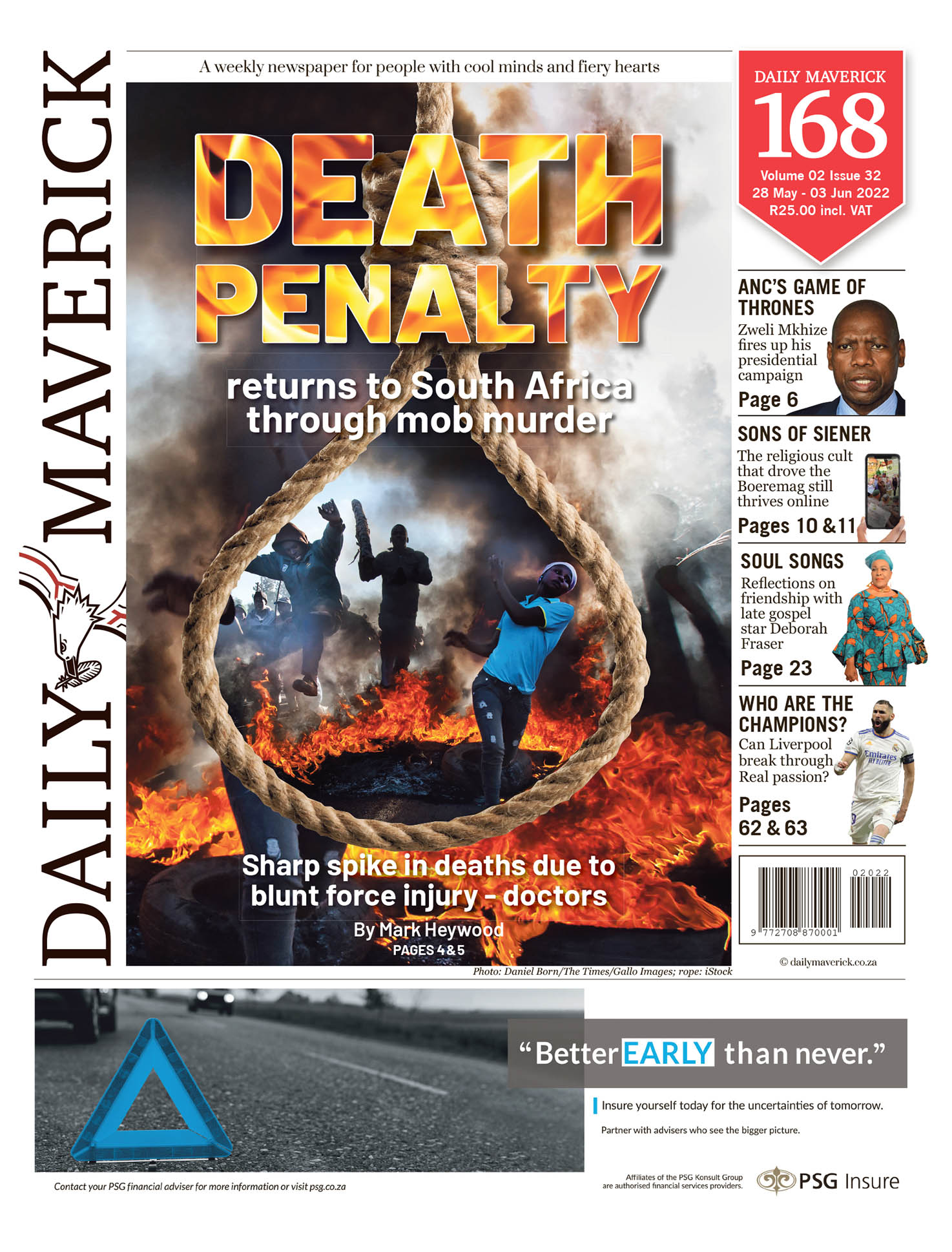SOCIAL TRANSFORMATION OP-ED
Racist incidents provide case studies for learning and teaching

We need to open up conversations at the dinner table and the weekend braai about what might have led the young perpetrator to urinate on a black student’s belongings — and the consequences.
The racist incident at Stellenbosch University in which white student Theuns du Toit urinated on the belongings of black student Babalo Ndwayana has elicited strong condemnation from across society. Every black person and the majority of white people are appalled and in disbelief that this incident could occur in a residence of a prestigious university.
However, it is a reality check that living and working among us are racists capable of such despicable and degrading acts. Moving beyond the shock, anger and pain the incident has provoked, it presents an opportunity to open up deeper conversations on racism in our homes, religious institutions, schools, universities and workplaces. This is a real-life, topical, learning and teaching moment that should not be missed.
We acquire our knowledge, skills, attitudes and values both formally and informally. Educators will attest to the difficulty of formally teaching and assessing values and attitudes. It is within our social structures of the family, circles of friends, places of worship and workplaces that attitudes and values are most easily formed, reinforced and reproduced. These are also the sites where they could be challenged and reformed.
Opening up conversations at the dinner table, weekend braai or staffroom table about what could have led this perpetrator to believe that urinating on a black student’s belongings was “a white thing”, the psychological and possible educational effects of this act on the victim, and the appropriate sanction for the perpetrator and restitution for the victim that would best serve justice, is one way to constructively explore and discuss the ongoing racism in society.
This is a generation of undergraduate students born in a democracy, and it is hoped that, after 28 years, we should have young people free of the shackles of racist prejudice and oppression.
Social integration, if not at school, then at least at university, should facilitate social cohesion. But evidently, for some, it does not.
I have seen Babalo Ndwayana and his father speak about the trauma of this racist incident but may have missed the apology and remorse from Theuns du Toit or his father. It is intriguing, though, why a privileged white student who is the son of a wine farmer who would be the employer of black people would be capable of such a racist act.
We are likely to gain a better understanding as this case unfolds in court, but the dialogues that have started need to be continued — the different views on whether the perpetrator should be expelled or given an opportunity to continue studying at the university; whether reconciliation is or should be a possibility; whether the perpetrator should be excluded from not only Stellenbosch University but from all institutions of higher education in the country; whether counselling and academic support will help the victim overcome the trauma of the event to enjoy a positive university experience; whether the victim will be emotionally scarred for life and whether his academic progress will be adversely affected by this racist attack on him.
It is also time for higher education institutions, and particularly those that are historically white, to examine their policies and practices in relation to social transformation.
Predominantly white residences and predominantly white house committees do not promote transformation, nor do they reflect the diversity of the student population.
While many universities have improved their student equity profiles in terms of black students, representativity at the qualifications level may need improvement. Institutional cultures and climates are influenced by student and staff demographic profiles.
According to the website of Stellenbosch University, in 2018 58.1% of enrolled students were white, 20.1% black, 18.1% coloured, 3.1% Indian and 0.2% Asian.
In a country where the black population is more than 80% and the white population less than 8%, the skewed race profile of students at Stellenbosch University, unless it has radically changed in the last four years, may need to be addressed.
Whatever the findings of the university and the court about this incident, it needs to be written up as a case study with its accompanying video footage for discussing, understanding and managing racism and diversity during student induction and diversity management workshops.
It would make a valuable resource for training and development. DM168
Q&A with Professor Naidoo
Q: I work in a finance department on payroll, but my dream is to be a chartered accountant. However, I did not have accounting as a subject in matric. Should I apply straight to tertiary institutions or do I have to do matric accounting first?
A: You should try to first apply directly to universities and colleges that offer accounting qualifications, but you will need to check whether accounting at the senior certificate level is a prerequisite.
You may be able to gain access to accounting qualifications, however, through a different access route known as recognition of prior learning (RPL), if this is accepted at the institution.
Access through RPL will require you to compile a learning portfolio that will be assessed. Institutions accepting admissions through RPL often provide guidance and support to students to compile their learning portfolios. DM168
Prof Monie Naidoo is an independent education development specialist and career coach. She was previously director of accreditation at the Council on Higher Education.
This story first appeared in our weekly Daily Maverick 168 newspaper, which is available countrywide for R25.

[hearken id=”daily-maverick/9588″]




















 Become an Insider
Become an Insider
The ongoing dramatization of this incident is in itself part of the problem. The assumption is that this would not have happened if the student concerned was white so therefore the motivation was racist !!
We have yet to know the background to this incident but I have no doubt there is more to this story.
Either way it was a foul act and students the world over behave badly under the influence. Not an excuse but it does provide context and should allow us to keep this incident in perspective.
Sadly you will only get rid of such behaviour when the essence of mankind changes.
Enough of racial profiling, social engineering with quotas etc, it never has worked anywhere. Merit should be the only benchmark for acceptance to universities however compelling the argument for redress.
Good lord.
How much mileage does DW need to get out of this stupid incident?
Just because yet another voice has punch the button, doesn’t mean it requires to be published.
Re the article:
the writer might do some research and reading: the Jews were only a tiny percentage of German population in 1933, somewhere around 2%. But they made up say 10 to 15% in some school districts and universities.
The rather problematic Nazis(!) decreed in 1933, Jews were not to be represented more in schools and universities than the national population %.
Jews were denied access to eduction by the thousands. No one has the right with that history to propose that all in SA is divide up in racist categories.
This article openly advocates a fascist race-based exclusionary policy.
Further, Stellenbosch Uni, in a mixed race province, (& primarily inhabited by colored and white), should adopt the national race % categories.
I think DM should consider a chief editor, who checks and redlines racist and derogatory submissions before publication.